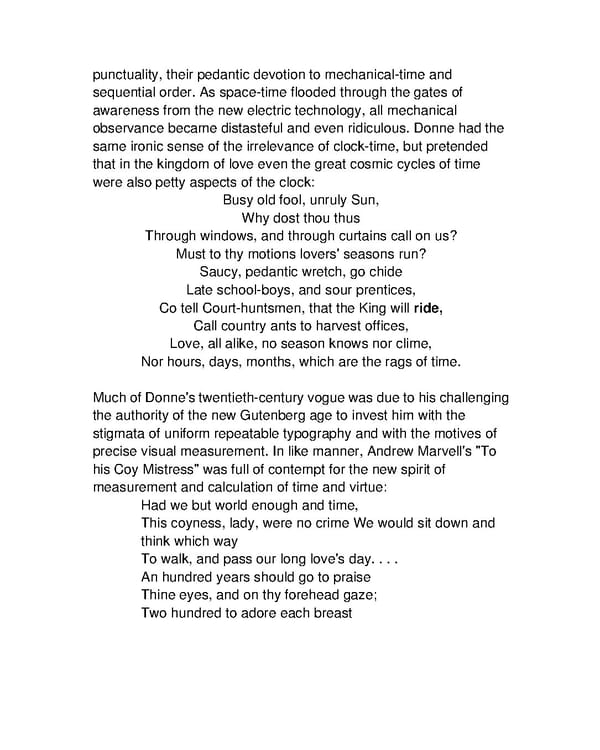punctuality, their pedantic devotion to mechanical-time and sequential order. As space-time flooded through the gates of awareness from the new electric technology, all mechanical observance became distasteful and even ridiculous. Donne had the same ironic sense of the irrelevance of clock-time, but pretended that in the kingdom of love even the great cosmic cycles of time were also petty aspects of the clock: Busy old fool, unruly Sun, Why dost thou thus Through windows, and through curtains call on us? Must to thy motions lovers' seasons run? Saucy, pedantic wretch, go chide Late school-boys, and sour prentices, Co tell Court-huntsmen, that the King will ride, Call country ants to harvest offices, Love, all alike, no season knows nor clime, Nor hours, days, months, which are the rags of time. Much of Donne's twentieth-century vogue was due to his challenging the authority of the new Gutenberg age to invest him with the stigmata of uniform repeatable typography and with the motives of precise visual measurement. In like manner, Andrew Marvell's "To his Coy Mistress" was full of contempt for the new spirit of measurement and calculation of time and virtue: Had we but world enough and time, This coyness, lady, were no crime We would sit down and think which way To walk, and pass our long love's day. . . . An hundred years should go to praise Thine eyes, and on thy forehead gaze; Two hundred to adore each breast
 Understanding Media by Marshall McLuhan Page 167 Page 169
Understanding Media by Marshall McLuhan Page 167 Page 169